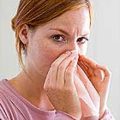Just Exercise – women who exercise regularly may be less likely than their inactive peers to develop breast cancer after menopause. Many research analysis have found that physical activity – either mild or intense and before or after menopause – may reduce breast cancer risk in women.
Exercise lowers breast cancer risk in postmenopausal women by reducing body fat and estrogen
In 2004 a research study conducted at Fred Hutchinson Cancer Research Center in Seattle, lead researcher Dr. Anne McTiernan proved that the exercise could lower breast cancer risk in postmenopausal women by reducing body fat and ultimately circulating estrogen concentrations.
Postmenopausal women who engage in regular physical activity are known to be less likely to develop breast cancer. Increased physical activity reduces levels of estrogens in postmenopausal women, and thus may reduce the risk of breast cancer.
Women who exercised experienced significant declines in blood levels of the female hormones estrone, estradiol, and free estradiol. Fat mass decreased in exercisers and greater losses of body fat were associated with larger decreases in blood hormone levels.
Exercise benefited older breast cancer survivors
In 2008, an Oregon Health & Science University Cancer Institute study examined different forms of exercise for women older than 65 who have had breast cancer.
The study evaluated the beneficial effects of aerobic exercise and resistance training for breast cancer survivors who are at least two years post-treatment with chemotherapy or radiation, explained Kerri Winters-Stone, Ph.D., the principal investigator, OHSU Cancer Institute member and associate professor, OHSU School of Nursing.
Besides the benefits of added activity, Winters-Stone said she had seen another benefit to women in similar studies. “The serendipitous outcome is the social benefits the women experienced because of their shared experience – having had breast cancer. This was a welcoming and safe environment for women to exercise. They shed the emotional weight of having had breast cancer because everybody in the room had gone through it”.
Moderate to vigorous exercise reduced risk of breast cancer
In 2009, Dr. Tricia M Peters from the U.S. National Cancer Institute, Bethesda, Maryland headed up an international team of researchers to look at the importance of various intensities of exercise at different stages in an individual’s life.
Over 110,000 post menopausal women were asked to rate their level of physical activity at ages 15-18, 19-29, 35-39, and in the past 10 years. It was found, over 6.6 years of follow up, that women who engaged in more than 7 hours per week of moderate-to-vigorous exercise for the last ten years were 16% less likely to develop breast cancer than those who were inactive. However, no link was observed between breast cancer risk and physical activity in women who were active at a younger age.
Dr. Peters concludes, “Our findings could help inform the mechanisms of the physical activity-breast cancer relationship. With breast cancer still claiming so many lives, all the information of potential preventive measures we can get is vital”.
Exercise, even mild physical activity, may reduce breast cancer risk
And, now, a new analysis done by University of North Carolina at Chapel Hill researchers has found that physical activity – either mild or intense and before or after menopause – may reduce breast cancer risk, but substantial weight gain may negate these benefits. The findings indicate that women can reduce their breast cancer risk by exercising and maintaining their weight.
While studies have shown that physical activity reduces breast cancer risk, many questions remain. For example, how often, how long and how intense does physical activity have to be to provide benefits? Also, do women with all body types experience a reduced risk when they exercise, and does exercise reduce the risk of all types of breast cancer?
To investigate, Lauren McCullough, a doctoral candidate at the UNC Gillings School of Global Public Health, and her colleagues looked for a link between recreational physical activity, done at different time points in life, and the risk of developing breast cancer.
The study included 1,504 women with breast cancer (233 noninvasive and 1,271 invasive) and 1,555 women without breast cancer who were 20 to 98 years old and were part of the Long Island Breast Cancer Study Project, an investigation of possible environmental causes of breast cancer.
Women who exercised either during their reproductive or postmenopausal years had a reduced risk of developing breast cancer. Women who exercised 10 to 19 hours per week experienced the greatest benefit with an approximate 30 percent reduced risk. Risk reductions were observed at all levels of intensity, and exercise seemed to reduce the risk of hormone receptor positive breast cancers, the most commonly diagnosed tumor type among American women.
“The observation of a reduced risk of breast cancer for women who engaged in exercise after menopause is particularly encouraging given the late age of onset for breast cancer,” McCullough said.
When the researchers looked at the joint effects of physical activity, weight gain and body size, they found that even active women who gained a significant amount of weight – particularly after menopause – had an increased risk of developing breast cancer, indicating that weight gain can eliminate the beneficial effects of exercise on breast cancer risk.
Enjoy your best health with exercise.










